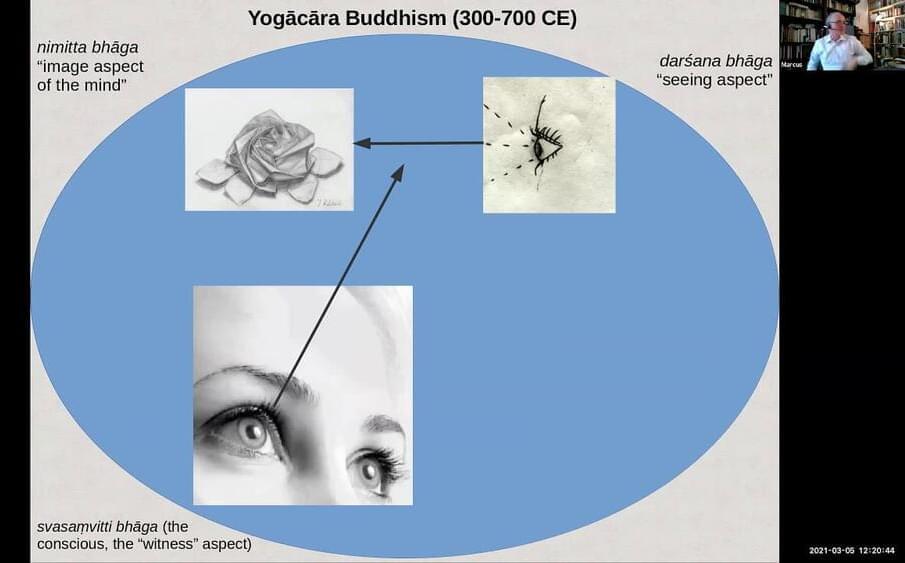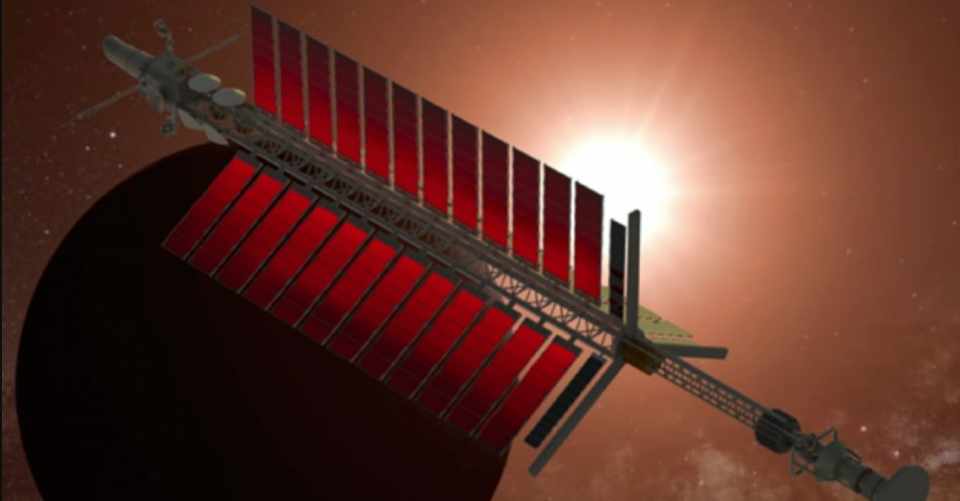Our model of the Universe, dominated by dark matter and dark energy, explains almost everything we see. Almost. Here’s what remains.
Discussion with Joscha Bach, Marcus Bingenheimer, Pei Wang, and Simon Wiles about Buddhist models of the mind and contemporary research in Artificial General Intelligence.
This event was a Global Studies webinar, co-sponsored by the Science, Technology, and Society CHAT Interdisciplinary Research Group, and the Temple University Libraries. It took place on 2021/03/05.
To view other library event recordings, visit: https://library.temple.edu/watchpastprograms
New video published on our YouTube channel:
New #research published in #experimental #neurology shows evidence that #lsd promotes #memory #neuroplasticity and possibly #neurogenesis.
Abstract linked in the description of the video.
#science.
#brain.
#neuroscience
I believe that these microbes are not just simple organisms but are some sorta biological singularity seeds that activate over millions of years developing life slowly and may be exterrestial in origin.
Researchers from Hokkaido University in Japan have found new evidence that the chemical components necessary to build DNA may have been carried to Earth by carbonaceous meteorites, some of the earliest matter in the solar system, as they report in a study published Tuesday in Nature Communications. Although these kinds of materials make up about 75 percent of all asteroids, they rarely fall to Earth, limiting how often scientists can study them. Yet they are troves of information: Scrutinizing these space rocks can tell stories about unique cosmic locations. Their contents may also help reveal the ancient chemical reactions that made our world a living planet.
Specifically, several meteorites have been found to contain nucleobases. These chemicals, called the building blocks of life, make up the nucleic acids inside DNA and RNA. Of the five major nucleobases, previous meteorite studies detected only three of them, named adenine, guanine, and uracil. But the present research proves for the first time that two more—cytosine and thymine—can exist within space rocks.
“The detection of all primary DNA and RNA nucleobases in meteorites indicates that these molecules have been supplied to the early Earth before the onset of life,” says Yasuhiro Oba, lead author of the study and an associate professor at Hokkaido University. ” In other words, we got information about the inventory of organic molecules related to DNA and RNA before any life arose on the Earth.” One of the oldest specimens in the study clocks in at about 4.6 billion years old, which is even older than the solar system.
My point on this would just be that AI will be able to make anything you want into a game, or movie, or TV episode. And, it can be any length you want; play it as it was intended, or you can change it in any direction you want. with movies and TV i also can see people trying to play interactively as a character in the story. media in 2030s.
The founder and CEO of Midjourney, David Holz, has some truly inspiring views around how AI image generation will transform the gaming industry. During the short time we spoke this week, I had to hold myself back from falling too deep into the AI rabbit hole. In the process, I discovered Holz’s view on how this kind of tech will develop and how it’s likely to benefit the gaming industry, as well as human creativity as a whole.
Holz believes that one day in the near future, “you’ll be able to buy a console with a giant AI chip and all the games will be dreams.”
The word ‘universe’ once described everything that exists. But as our horizons have expanded, many scientists have begun to consider what’s beyond our own cosmos, and…
From health concerns to funding, there’s no shortage of obstacles preventing humans from traveling beyond our solar system. But the main obstacle is propulsion: Our spacecraft…
Join us on Patreon!
https://www.patreon.com/MichaelLustgartenPhD
Bristle Discount Link (Oral microbiome quantification):
ConquerAging15
https://www.bmq30trk.com/4FL3LK/GTSC3/
Cronometer Discount Link (Daily diet tracking):
https://shareasale.com/r.cfm?b=1390137&u=3266601&m=61121&urllink=&afftrack=
Support the channel with Buy Me A Coffee!
https://www.buymeacoffee.com/mlhnrca.
Paper referenced in the video:
Supplementing Glycine and N-Acetylcysteine (GlyNAC) in Older Adults Improves Glutathione Deficiency, Oxidative Stress, Mitochondrial Dysfunction, Inflammation, Physical Function, and Aging Hallmarks: A Randomized Clinical Trial.
https://pubmed.ncbi.nlm.nih.gov/35975308/
GlyNAC (Glycine and N-Acetylcysteine) Supplementation in.
Seismic data reveal a candidate impact crater offshore West Africa that formed close in time to the K-Pg extinction event.
The U.S. government is planning to review the environmental effects of operations at one of the nation’s prominent nuclear weapons laboratories, but its notice issued Friday leaves out federal goals to ramp up production of plutonium cores used in the nation’s nuclear arsenal.
The National Nuclear Security Administration said the review—being done to comply with the National Environmental Policy Act—will look at the potential environmental effects of alternatives for operations at Los Alamos National Laboratory for the next 15 years.
That work includes preventing the spread and use of nuclear weapons worldwide and other projects related to national security and global stability, the notice said.









